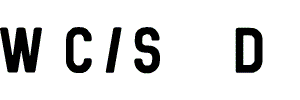Nathalie Encarnacion
“What protective measures can you think of so we don’t go back to the pre-crisis production model?”
The pandemic has affected both demand for and supply of commodities. Those effects are direct, resulting from shutdowns to mitigate the spread of the virus and disruptions to supply chains, and also indirect, as the global response slows growth and leads to what is anticipated to be the deepest global recession in decades. However, according to the Guardian, “Global carbon emissions from the fossil fuel industry could fall by a record 2.5bn tonnes this year, a reduction of 5%, as the coronavirus pandemic triggers the biggest drop in demand for fossil fuels on record.” For the first time in 50 years, we would be seeing the fossil fuel industry’s biggest drop in CO2 emissions.
It is in everyone’s best interest to continue to cease consumption and the support of the consumer market, retail market, and marketplaces that support energy, industrial, industries fueling climate change. We have control. This is not a challenge. The world is telling us to slow down.
Rethink your International transport, rethink your local transport, rethink your spending habits. This is the new normal. Continue restricting your flying to only critical, long-distance trips. Maritime and air shipping have an extreme effect on the climate, from clothes to groceries shipped from Chile and Australia to Europe. There are no perfect solutions to slow down or reverse climate change. However be mindful.
We can see from our lifestyle changes we have the power. We must continue to support local and consume less. When we see our neighbor suffering, help them. This is our new reality. Systems of government are not in our favor, your neighbor is. Lend your neighbor a hand. Support your community. Trust in one another. We have demonstrated very clearly these past 7 weeks that we can come together, connect from afar, turn off pollution, curve co2 emissions. This does not have to be temporary. And we do not need to see people suffer. There is a light in this darkness.
When the ban gets lifted continue to exercise your rights as citizens and consumers. Avoid investing your money into companies that fuel fossil industries and a capitalist system gridlocked in investing in high-emission industries and begin investing into the one’s beside you.
This is a moment to embrace the road towards transition. We must continue to sacrifice. Build our own local economies. Embrace the DIY. Maintain strength. Discipline. Control. And do not fear. We must invest in renewable energy sources, our friends, and in ourselves. Think positively. Burn down a corrupt economic, capitalist system. Work with each other, not against. Create cooperatives.
This isn’t a time of uncertainty or fear. This is the time of utmost certainty. We know what we should be doing. We are the solution. Continue to reflect. Continue to be mindful. Continue to disrupt supply chains and rattle the market. Continue to create meaningful new and cold connections. Stand 6 feet apart, with strength and care. This is no longer about about “me” it is about “us”.
I ask WHAT DO WE TRULY NEED? HOW CAN WE FULFILL OURSELVES IN MEANINGFUL WAYS THAT GO BEYOND CONSUMPTION? WHAT IS WEALTH MEASURED BY?
